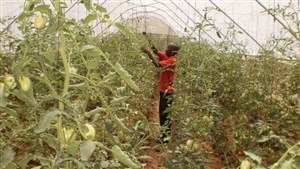 The American Foundation for Children with AIDS (AFCA) helps clinics/hospitals care for HIV+ children and their guardians/caregivers in four different Sub-Saharan countries – Kenya, Uganda, Zimbabwe and the Democratic Republic of Congo. These partners vary wildly in their levels of modernization and means. They range from full service hospitals with electricity to dried mud hut clinics. This means our ways of helping them must vary also.
The American Foundation for Children with AIDS (AFCA) helps clinics/hospitals care for HIV+ children and their guardians/caregivers in four different Sub-Saharan countries – Kenya, Uganda, Zimbabwe and the Democratic Republic of Congo. These partners vary wildly in their levels of modernization and means. They range from full service hospitals with electricity to dried mud hut clinics. This means our ways of helping them must vary also.
In Mombasa, Kenya, AFCA has helped the Community Based Health Care and AIDS Relief Project (CBHC) in 2005. While I was there in January of this year, I was able to see the great good this charity does to help thousands of the very poor.
 Recently, they lost a large source of their funding. Tanya Weaver’s (AFCA’s director) solution was to push harder to help make them more self-sufficient. She sat down with the leader of the CBHC and together, they dreamed big. After much research on how to make this work for their specific area, they decided to build specially designed fabric greenhouses to grow food which is traditionally difficult to grow in this part of the world – tomatoes and peppers – along with drilling a borehole to provide the water for the greenhouses and outer gardens. East Africa is currently in one of the worst droughts in decades and a borehole and greenhouses will help grow food for those who most need it. Besides tomatoes and peppers on the inside of the greenhouses, kale, peanuts, corn, squashes, onions, potatoes, yams, spinach, and other vegetables are grown on the outside using the drip irrigation system that is part of each greenhouse.
Recently, they lost a large source of their funding. Tanya Weaver’s (AFCA’s director) solution was to push harder to help make them more self-sufficient. She sat down with the leader of the CBHC and together, they dreamed big. After much research on how to make this work for their specific area, they decided to build specially designed fabric greenhouses to grow food which is traditionally difficult to grow in this part of the world – tomatoes and peppers – along with drilling a borehole to provide the water for the greenhouses and outer gardens. East Africa is currently in one of the worst droughts in decades and a borehole and greenhouses will help grow food for those who most need it. Besides tomatoes and peppers on the inside of the greenhouses, kale, peanuts, corn, squashes, onions, potatoes, yams, spinach, and other vegetables are grown on the outside using the drip irrigation system that is part of each greenhouse.
 With AFCA’s guidance, funding and help, they are currently building the second of eleven planned greenhouses. This food not only feeds some of the malnourished children in the program, but the excess is sold to fund the organization. When they are all completed CBHC will have a large, continuing source of income to help the poor. In addition, the greenhouses provide jobs for many of those in the programs.
With AFCA’s guidance, funding and help, they are currently building the second of eleven planned greenhouses. This food not only feeds some of the malnourished children in the program, but the excess is sold to fund the organization. When they are all completed CBHC will have a large, continuing source of income to help the poor. In addition, the greenhouses provide jobs for many of those in the programs.
Yes, I’d say this is another AFCA success story.
By Pat Dorsey

